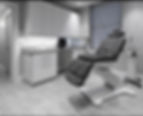
SCOTT A. SIEGEL, MD, DDS, FACS, FICS, FAAP
NORTHEAST ORAL & MAXILLOFACIAL SURGERY
CENTER FOR TETHERED ORAL TISSUES™
NEW YORK CITY • LONG ISLAND
FOLLOW US

ORAL AND MAXILLOFACIAL SURGEONS:
The experts in face, jaw and mouth surgery

Wisdom Teeth
Wisdom teeth (also known as third molars) typically develop and appear in your mouth between the ages of 17 and 25. Wisdom teeth may need to be surgically removed due to impaction, a lack of room which results in wisdom teeth being unable to break through the gums.
Other indicators for extraction include: moved when there are:
-
Infections and/or periodontal (gum) disease
-
Cavities that can’t be restored
-
Cysts, tumors or other pathologies
-
Damage to neighboring teeth

Dental Implants
Dental implants replace natural teeth and are embedded in your jawbone. They are unlike fixed bridges or removable dentures which affect neighboring healthy teeth &/or lead to bone loss in the jaw. Dental Implants are made of titanium metal that fuses with the jawbone through a process called osseointegration.
-
Dental Implants can last a lifetime
-
Dental Implant Surgery is best performed by a trained surgeon
-
Osseointegration usually takes several months once the implant is put into your jawbone, and as a result, implants never slip or make embarrassing noises similar to dentures

Extractions
Tooth Extractions and Other Oral Surgeries are indicated in order to improve function, appearance and overall function.
Procedures include:
-
Tooth Extractions
-
Apicoectomy
-
Exposing Impacted Teeth (Expose and Bond) as Part of Orthodontic Treatment
-
Dental Hemisection and Root Amputation
-
Trigeminal Nerve Repair
-
Temporary Anchorage Devices (TADs)
-
Gingivectomy and Gingivoplasty
-
Crown-lengthening Procedures
-
Soft-tissue grafts

Pathology
Oral and maxillofacial surgeons are experts in diagnosing and surgically treating cancer of the head, neck and mouth. Approximately 50,000 Americans will be diagnosed with Oral or pharyngeal cancer this year. Oral cancer's mortality rate is particularly high because is often discovered late in its development. Your family dentist or OMS is in the best position to detect oral cancer during your routine dental examinations. Also, please consider performing an oral cancer self-exam each month. Early detection is an important factor in a complete recovery.

Facial Trauma
Oral and maxillofacial surgeons (OMSs) are experts in treating and repairing facial injury and trauma, including fractures of the upper and lower jaws and the orbits surrounding the eyes as well as facial lacerations. Their knowledge of how jaws come together (dental occlusion) is critical when repairing complex facial fractures.
If you or a loved one suffers a facial or mouth injury that requires a trip to the emergency room, be sure to ask that an OMS is called for consultation. With their background and training, OMSs are the specialists most qualified to deal with these types of injuries. In some cases, they may detect a “hidden” injury that might otherwise go unnoticed.

Anesthesia
Oral and Maxillofacial Surgeons have extensive training which enables them to appropriately administer local anesthesia, all forms of sedation and general anesthesia. OMSs are experienced in airway management, endotracheal intubation, establishing and maintaining intravenous lines, as well as managing complications and emergencies that may arise during the administration of anesthesia.
Before your surgery, your OMS will review the type of anesthetic to be used as well as the way you’re likely to feel during and after the operation. This is the time to discuss any concerns you may have about any facet of the operation. Usually, patients describe their feelings during surgery as comfortable and surprisingly pleasant. After surgery, you may be prescribed a medication to make you as comfortable as possible when you get home.

Sleep Apnea
Obstructive sleep apnea (OSA) is a serious and even life-threatening condition. The risks of undiagnosed OSA include heart attack, stroke, irregular heartbeat, high blood pressure, heart disease and decreased libido. In addition, OSA causes daytime drowsiness that can result in accidents, lost productivity and relationship problems.
The National Sleep Foundation estimates that 18 million adults have obstructive sleep apnea, and it is likely that OSA also affects 2 percent to 3 percent of children. Yet, people who have OSA may not be aware they have a problem. If someone close to you has spoken of your loud snoring and has noticed that you often wake up abruptly gasping for air, you should consult your Oral and Maxillofacial Surgeon (OMS).

TMJ
The temporomandibular joint (TMJ) is a small joint located in front of the ear where the skull and lower jaw meet. The joint permits the lower jaw to move and function. TMJ disorders are not uncommon. Individuals with a TMJ disorder may experience a variety of symptoms, such as earaches, headaches or a limited ability to open their mouths.
When symptoms of TMJ trouble appear, consult an oral and maxillofacial surgeon (OMS) who has the expertise to correctly diagnose the problem. TMJ disorders can be complex and may require different diagnostic procedures.

